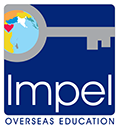Education in Canada is provided, funded and overseen by federal, provincial, and local governments. Education is within provincial jurisdiction and the curriculum is overseen by the province. Education in Canada is generally divided into primary education, followed by secondary education and post-secondary. Education is compulsory up to the age of 16 in every province in Canada, except for Ontario and New Brunswick, where the compulsory age is 18.
At Impel we assist students aspiring for Higher Education in Canada (Post-Secondary Level).
Levels of Education
As the education system in Canada is managed by the varying provincial governments in Canada, the way the educational stages are grouped and named may differ from each region.
Outside Québec
- Primary education
- Grade 1 (ages 6-7)
- Grade 2 (ages 7-8)
- Grade 3 (ages 8-9)
- Grade 4 (ages 9-10)
- Grade 5 (ages 10-11)
- Grade 6 (ages 11-12)
- Intermediate education
- Grade 7 (ages 12-13)
- Grade 8 (ages 13-14)
- Grade 9 (ages 14-15)
- Secondary education
- Grade 10 (ages 15-16)
- Grade 11 (ages 16-17)
- Grade 12 (ages 17-18)
- Grade 12+ (ages 17+) (Ontario only)
- Tertiary education (Post-Secondary Education)
- Certificates, Diplomas, Associate Degree (Offered in Colleges)
- Bachelor’s Degree, Masters Degree, PhD (Offered in Universities and University College)
Québec
- école primaire (Primary school, equivalent to Elementary School or Grade School)
- Grade 1 (ages 6-7)
- Grade 2 (ages 7-8)
- Grade 3 (ages 8-9)
- Grade 4 (ages 9-10)
- Grade 5 (ages 10-11)
- Grade 6 (ages 11-12)
- école secondaire (literally Secondary school, or High School)
- Secondary I (ages 12-13)
- Secondary II (ages 13-14)
- Secondary III (ages 14-15)
- Secondary IV (ages 15-16)
- Secondary V (ages 16-17)
- College
- Pre-university program, two years (typically Social Sciences, Natural Sciences or Arts) Professional program, three years (e.g. Paralegal, Dental Hygienist, Nursing, etc.)
- University (Must have a Diploma of College Studies
- Undergraduate
Three of four years leading to a Bachelor’s degree. Non-Québec students require an extra year to complete the same degree because of the extra year in college.
- Undergraduate
- Graduate (or postgraduate)
- One or two years leading to a Master’s degree.
- Three or more years leading to a Doctoral degree.

Admission Support Kit – Canada
| Admission Checklist | SOP- Guidelines |
SOP – Do’s & Dont’s |
|||
| Sample SOP | Resume – Guidelines | Resume – Sample | |||
| CV v/s Resume | General RECO Letter |
Business RECO Letter |
|||
| CV – Guidelines | CV – Sample |



